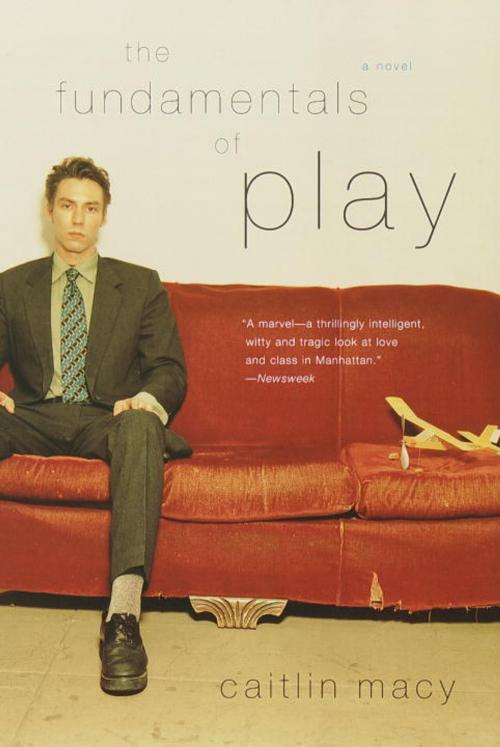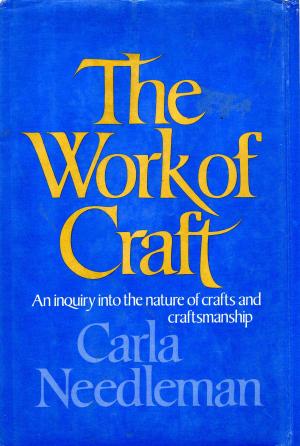| Author: | Caitlin Macy | ISBN: | 9780307829009 |
| Publisher: | Knopf Doubleday Publishing Group | Publication: | October 17, 2012 |
| Imprint: | Anchor | Language: | English |
| Author: | Caitlin Macy |
| ISBN: | 9780307829009 |
| Publisher: | Knopf Doubleday Publishing Group |
| Publication: | October 17, 2012 |
| Imprint: | Anchor |
| Language: | English |
"Kate was what you wanted, somehow, in this infinitely ironic age. She was the kind of girl about whom other girls used to say, 'All right, so she's thin but,' trying vainly to suss out the appeal. And even now, when her name comes up, and with it the sulky protest it invariably evokes--'She's not that great'--I do not feel compelled to argue in her defense."
Some fiction debuts have remarkably strong stories, some have refreshing new voices, some have perfect cultural timing. The Fundamentals of Play is that literary rarity which has all three.
George Lenhart is, chronically, in love with Kate Goodenow. So is Nick Beale, the working-class son of a Maine lobsterman from the town where Kate spent her childhood summers. So is Chat Wethers, an old-money friend of George's from Dartmouth. And so is Harry Lombardi, a brilliant, startlingly successful, but socially awkward Dartmouth upstart who has been trying to enter this circle for years.
It is George who tells the interwoven stories of these five young people, some of whom, in their lineage or finances, represent the last gasp of the old Northeastern Upper Class. Starting with the year after college, when they all land in Manhattan, George describes the good times and disappointments, ambition and manners, sexual secrets and money-cursed friendships, that have tied these people to one another for a lifetime. He tells of Nick's charismatic past and drug-ridden present, and he shows the snobbery and avarice that lurk in Kate's background--in stark contrast to her ineffable allure. And as George tells these stories (and observes Harry's spectacular rise in the new, as-yet-unnamed phenomenon of the Internet), he implicitly chronicles the end of an era and the emergence of a new definition of class--just as The Fundamentals of Play represents the emergence of a distinctive new talent in American fiction.
"Kate was what you wanted, somehow, in this infinitely ironic age. She was the kind of girl about whom other girls used to say, 'All right, so she's thin but,' trying vainly to suss out the appeal. And even now, when her name comes up, and with it the sulky protest it invariably evokes--'She's not that great'--I do not feel compelled to argue in her defense."
Some fiction debuts have remarkably strong stories, some have refreshing new voices, some have perfect cultural timing. The Fundamentals of Play is that literary rarity which has all three.
George Lenhart is, chronically, in love with Kate Goodenow. So is Nick Beale, the working-class son of a Maine lobsterman from the town where Kate spent her childhood summers. So is Chat Wethers, an old-money friend of George's from Dartmouth. And so is Harry Lombardi, a brilliant, startlingly successful, but socially awkward Dartmouth upstart who has been trying to enter this circle for years.
It is George who tells the interwoven stories of these five young people, some of whom, in their lineage or finances, represent the last gasp of the old Northeastern Upper Class. Starting with the year after college, when they all land in Manhattan, George describes the good times and disappointments, ambition and manners, sexual secrets and money-cursed friendships, that have tied these people to one another for a lifetime. He tells of Nick's charismatic past and drug-ridden present, and he shows the snobbery and avarice that lurk in Kate's background--in stark contrast to her ineffable allure. And as George tells these stories (and observes Harry's spectacular rise in the new, as-yet-unnamed phenomenon of the Internet), he implicitly chronicles the end of an era and the emergence of a new definition of class--just as The Fundamentals of Play represents the emergence of a distinctive new talent in American fiction.















